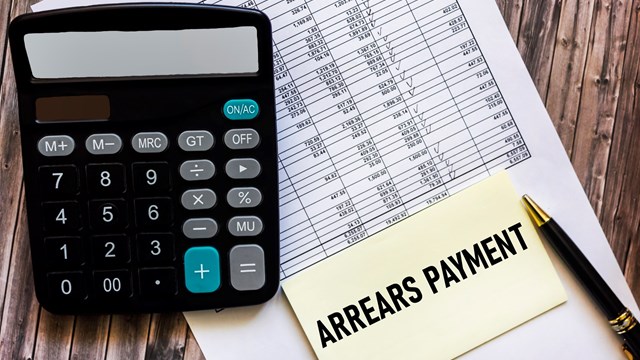Like concierges or travel agents, professional residential managers provide a service to their customers—building managers operate in the service industry, after all. And as in all quadrants of the service industry, some companies perform better than others.
Even if your association's management company and individual managers seem to be doing a decent job, it's wise from time to time to assess both the company's overall functionality and the performance of the professionals themselves. To do that, it's necessary to first understand what professional management is supposed to do. From there, you'll have a clearer picture of what great management looks like, and can compare it to the service you're getting.
The Basics
First of all, it's important to understand the fundamental reason why property managers are hired in the first place. (Hint: It's all about the bottom line.)
According to the U.S. Department of Labor, "Property, real estate and community association managers maintain and increase the value of real estate investments. Property and real estate managers oversee the performance of income-producing commercial or residential properties and ensure that real estate investments achieve their expected revenues. Community association managers manage the common property and services of condominiums, cooperatives and planned communities through their homeowners' or community associations."
That's the general idea, but of course the real work is in the details. The Department of Labor points out the basic duties of a property manager:
"Generally, property and real estate managers handle the financial operations of the property, ensuring that rent [or dues] is collected and that mortgages, taxes, insurance premiums, payroll and maintenance bills are paid on time. Often, property managers negotiate contracts for janitorial, security, grounds keeping, trash removal and other services. Managers also purchase supplies and equipment for the property and make arrangements with specialists for repairs that cannot be handled by regular property maintenance staff.
Property managers must understand and comply with provisions of legislation, as well as local fair housing laws.
To ensure that the property is safe and properly maintained, on-site managers routinely inspect the grounds, facilities and equipment to determine whether repairs or maintenance are needed. In handling requests for repairs or trying to resolve complaints, they meet not only with current residents, but also with prospective residents or tenants to show vacant apartment units. On-site managers also are responsible for enforcing the terms of rental or lease agreements, such as rent collection, parking and pet restrictions, and termination-of-lease procedures.
Other important duties of on-site managers include keeping accurate, up-to-date records of income and expenditures from property operations and submitting regular expense reports to the asset property manager or owners."
And that's just an abbreviated description. Since the workload is so massive, there's nothing wrong with a little investigation and assessment by the board from time to time—especially on some of the more crucial elements of your building manager's job.
Report Cards
Managers are hired to be the eyes and ears of the association, but if the information they're getting is stopping with them, what's the point? What sorts of reports and records should be kept?
Jonathan West is president of the Charles H. Greenthal Group, a management company in New York City. According to West, "Communication is the key," and he adds that clear, accurate reports are an essential piece of the communication puzzle.
"There are several reports that should be given to board members on a regular basis," West says. "The first being a financial report, outlining the overall financial well-being of the property. This report should contain a variety of important information on both the operational and expense side of the asset. The second report is a status report, sometimes called an action report. This report provides [clients] with the data on the particular items taking place at the property. For example: The report would have the date an issue was brought to our attention and the action being taken, the status of the action being taken, who is responsible for the action and the date of resolution."
The reports don't stop there, according to West, who sees a total of five different reports as necessary for good manager/board/shareholder relations.
"The third report is resident/shareholder/owner issues. It [provides] the date the issue came in, the nature of the issue, what action is to be taken to resolve the issue and date of completion. When this particular report is generated, it is backed up by the resident/ shareholder/owner and manager's approval that the action was acceptable. The fourth report is an update on staffing. This report is generated if any overtimes or anomalies take place during the course of a month, or if there are any staff concerns that would require the board's involvement. And the final report would be on any work-related contracts such as elevator modernizations, roof replacement or other large capital projects being undertaken."
Curt Macysyn is executive vice president of New Jersey's Community Associations Institute (CAI-NJ) and agrees that keeping precise, accurate records is an incredibly important function of any manager—for both their benefit and the benefit of those to come. "The manager should comply with all appropriate state and federal laws regarding the maintenance of documents," Macysyn says. "If in doubt, the manager should rely on the knowledge of the board attorney, [and] records should be transferred to a new management company in a timely manner."
The Long Arm of the Law
Speaking of abiding by state and federal laws, managers should keep abreast of changes in the law that affect the association or their buildings' operations Great property managers go a little further than that.
"It's highly likely that [the manager] may not know every change of laws on the federal, state and city level," says West. "If the management company that they work for is competent, they'll hold regular meetings with the managers to bring them up to speed on any changes. At my company, we have a compliance department, and in regular monthly management meetings of all our account executives, managers and on-sites, we bring up any changes in the laws at that time. All information is disseminated so that everyone is educated regarding changes to the laws. It's backed up with the appropriate documentation and, in many cases, disseminated from the management company to the board members themselves so that they are cognizant of said changes."
Negligence in this area of a management company's duties can create expensive problems. While most of the provisions demanded by the Americans with Disabilities Act (ADA) or the Federal Fair Housing Amendment Act (FFHAA), for example, are widely understood and complied with, newer legislation sometimes doesn't get as much attention—but still needs to be complied with. If HOAs ignore or are ignorant of new regulations, hefty fines and fees can be assessed.
So how do you know these laws are being observed by your management company? Simple: Educate yourself and ask questions.
"This is an ongoing process, so boards should be diligent in discussing the multitude of compliance issues with the manager," says Macysyn. "It is a function of meeting as a board on a regular basis and reviewing the activities of the manager. There is no one thing that board members can do other than be appropriately active."
Public Relations
In case you haven't noticed already, communication between board members and managing agents and their parent companies is the best way to ensure that the job being done is being done well. Board meetings with managers are obvious times where assessment can occur.
"Communicating routine business matters should be a regular occurrence at board meetings or through a newsletter," Macysyn notes. "The manager should use good judgment as to what matters should be brought before the full board and what matters can be handled routinely. The manager should not be a ping pong ball between the residents and board."
West adds that managers on top of their jobs should be attending certain monthly and yearly meetings with the kinds of reports he detailed above.
"There are meetings that take place monthly as well as annually, like shareholders meetings. The manager attends and participates in these meetings, providing them with [reports and] information. If there are capital projects in progress, an additional construction meeting may be held to go over the project with the appropriate parties."
Final Analysis
When assessing your management company's performance, seeing is often believing. Are the grounds kept clean and free of debris? Is there an unusual number of vacancies in the building? Are your heating or cooling bills disproportionate to those of your friends in other buildings? When you communicate with your building manager, do you feel comfortable asking him or her a question or voicing a concern or frustration? When's the last time you saw your building manager at a shareholder or board meeting?
Asking these questions should give you an idea of the job your manager is doing. From there, a more formal assessment can take place. However, if you haven't been to a board meeting in a few years and aren't exactly sure what your manager's name is, don't be too quick to judge his performance—for management to be truly effective, all parties must commit to being good communicators.
"The board should evaluate yearly the effectiveness of the manager only if the board has set attainable goals and objectives with appropriate timelines," says Macysyn. "If the board has not communicated its broad policies and goals, then it would not be fair to judge the manager using constantly shifting priorities. Board members should determine the goals based upon their level of outreach with the community."
Mary K. Fons is a freelance writer and performance artist living in Chicago, Illinois.







Leave a Comment